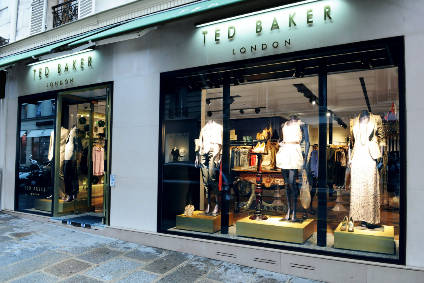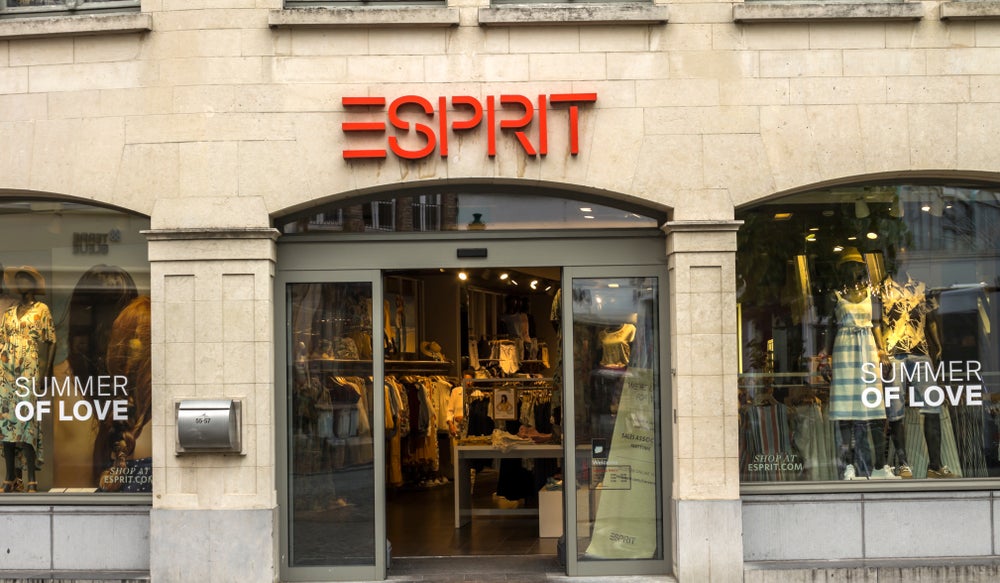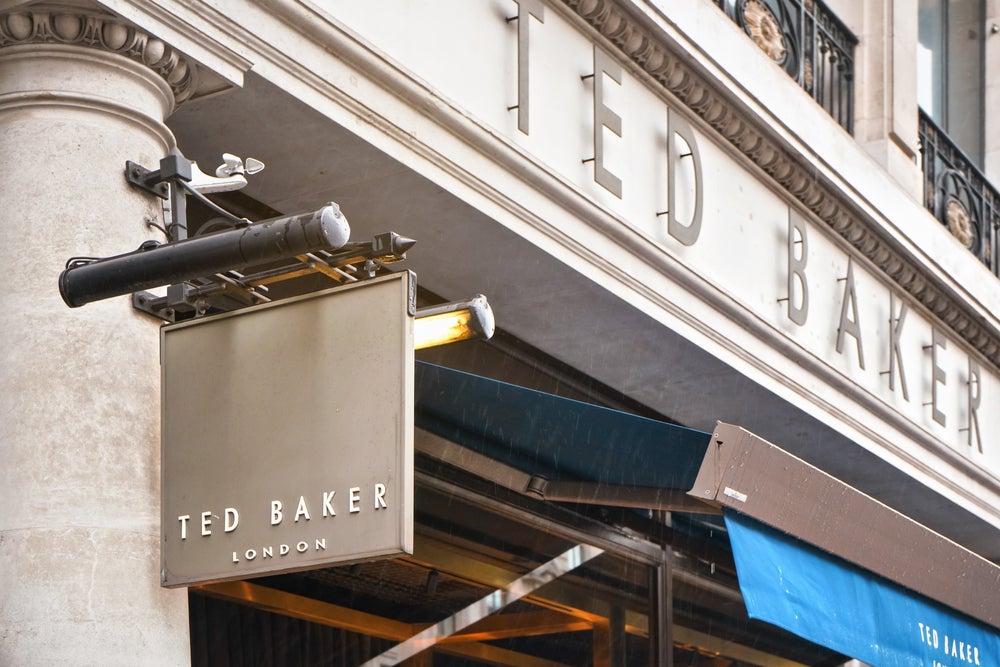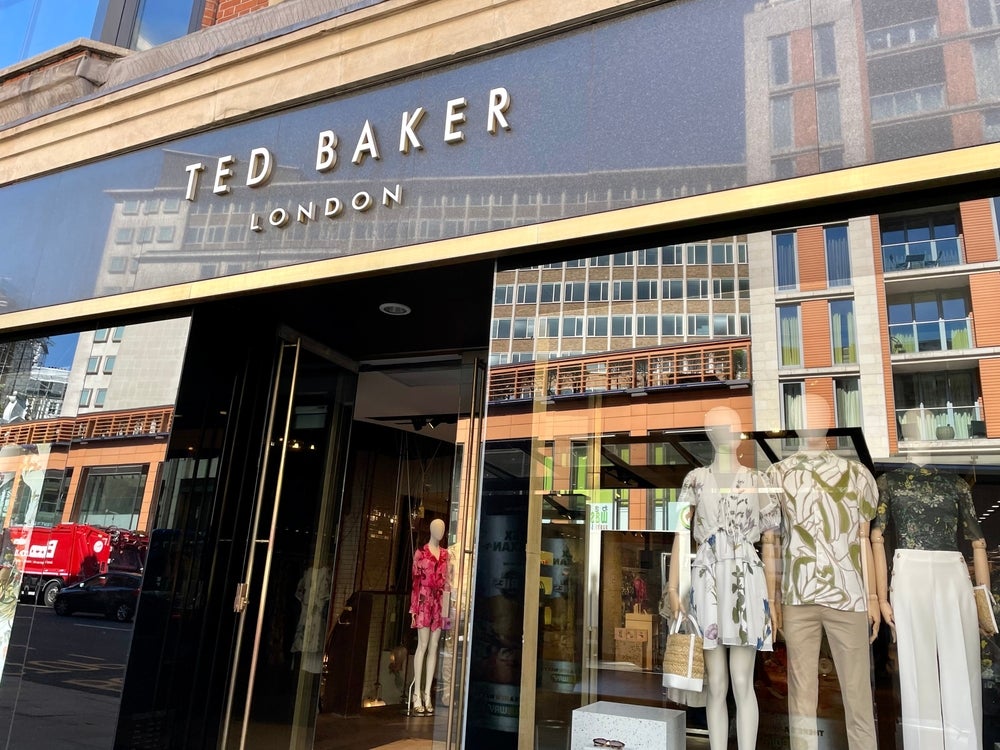
Fashion retailer Ted Baker plans to raise GBP95m (US$117.7m) to reduce its debt and invest in new efforts to try to turn the business around after posting a near GBP80m annual loss.
The company expects to raise the cash through a placing and open offer of newly-issued ordinary shares, and up to a further GBP10m through an offer for subscription. The new shares will be issued at an offer price of 75 pence per share.
“This capital raising will strengthen the balance sheet, allowing the company to navigate through the Covid-19 disruption and invest in its future through the transformation plan,” it said in a statement this morning (1 June).
The plans were revealed alongside Ted Baker’s full-year figures, which include a GBP79.9m pre-tax loss for the 52 weeks to 25 January. This compares to a pre-tax profit of GBP30.7m in the prior year.
Ted Baker said GBP84.6m of non-underlying expenses, mainly comprising GBP45.8m related to inventory, GBP16.2m related to impairment of store assets, GBP7.6m related to losses on the disposal of the Asian business, and GBP6.5m for legal and professional costs, were to blame.
See Also:
The first-time application of IFRS16, a new standard for lease accounting, also introduced charges of GBP5m. Underlying profit before tax and IFRS 16 totalled GBP9.8m, compared to GBP63m last year.
How well do you really know your competitors?
Access the most comprehensive Company Profiles on the market, powered by GlobalData. Save hours of research. Gain competitive edge.

Thank you!
Your download email will arrive shortly
Not ready to buy yet? Download a free sample
We are confident about the unique quality of our Company Profiles. However, we want you to make the most beneficial decision for your business, so we offer a free sample that you can download by submitting the below form
By GlobalDataUnderlying gross margin fell to 55.6% from 59.8% in 2019, impacted by increased promotional activity, lower wholesale margin on footwear and an active approach to inventory sell-through, partially offset by higher margin on retail footwear sales.
Total revenue, meanwhile, was down 1.4% to GBP630.5m from GBP639.6m in the year-ago period. In constant currency, total revenue was down by 2.4%. Impacts included significant discounting across the apparel industry, particularly in the UK, in response to weak consumer spending and channel shift to online.
Retail revenues fell 4.6% in the period to GBP439.9m, driven by a 5.3% fall in store revenues to GBP321.2m and a 2.5% decline in e-commerce sales to GBP118.7m.
The full-year results cover the period before the coronavirus pandemic took hold, with current trading “significantly impacted.” Company revenue tumbled 36% for the 14 weeks from 26 January to 2 May, compared to the same period last year. Total retail sales, including online, were down 34%.
The online retail channel, however, grew 50% in the period and was up 78% in the six weeks from 22 March.
Ted’s Growth Formula
As well as a challenging external environment, Ted Baker’s annual performance was hit by internal disruption, including the December departure of long-time non-executive director Ron Stewart, just a week after the UK fashion retailer saw its CEO and chairman Lindsay Page step down after just nine months in the role.
Page, who had been with the company since 1997, stepped into the CEO post following the resignation of company founder Ray Kelvin on allegations of inappropriate behaviour towards employees.
And in January, an auditor’s review found Ted Baker had overstated the value of its inventory by GBP58m – more than double estimates from the UK fashion and lifestyle brand.
In response, the group has outlined a new transformation strategy, ‘Ted’s Growth Formula’, to drive a more profitable, cash-generative business.
Underpinned by the proceeds from the capital raising, the strategy will focus on three key “building blocks”: stabilising the foundations, driving growth, and enhancing operational excellence.
Included are plans to overhaul Ted Baker product by making its apparel offering more relevant to all day/week occasions, and driving accessories, footwear and large licence partner categories.
In terms of its targets, the company intends to consolidate its supplier base from 150-plus to 100 in FY21, along with reducing its stock cycle from three to two years. It is also eyeing medium-term revenue growth of about 5% and EBITDA margin of 7% to 10% in FY23.
“The Ted Baker brand is much loved, it has a unique personality and character built up over many decades, and that provides us with a remarkably strong foundation from which to continue our international growth,” CEO Rachel Osborne said. “Over the past six months, our new executive team have pulled together and undertaken a thorough review of the business, identified key opportunities and acted decisively in a number of areas.
“I am confident that our transformation plan will enable us, Ted Baker, to capitalise on our opportunities and deliver value for all of our shareholders.”
Covid-19 exacerbates troubles
Emily Salter, retail analyst at data and analytics company GlobalData, notes that after a turbulent 2019, Covid-19 has dashed any hopes of a recovery in 2020 for Ted Baker as fashion is forecast to be one of the sector worst hit by the pandemic. GlobalData predicts a 33.1% fall in UK clothing and footwear expenditure this year.
“Ted Baker has been particularly impacted due to its reliance on occasionwear, already having to resort to regular discounting to drive sales as consumers have little reason to purchase these items,” Salter says.
“Although its sales are likely to start improving in the next few weeks as stores across Europe start to re-open, recovery will be slow as many consumers will be unwilling to return to shopping locations and economic uncertainty will be high, reducing propensity to spend on premium brands. In addition, demand for its products will remain subdued with weddings and social events on hold for the foreseeable future.
“Prior to the onset of Covid-19, Ted Baker’s sales were suffering as the appeal of the brand was waning as it struggled to resonate with shoppers, with store and online revenue falling by 5.3% and 2.4% respectively in FY2019/20. Though the retailer blamed discounting for this decline, the fact that it was unable to drive growth online points to problems with the relevance of the brand.”
She adds the retailer was in need of a turnaround before the Covid-19 outbreak so its efforts announced today are now “even more necessary.”
“It now has a permanent CEO and CFO to help address these issues but turning the business around will not be an easy feat as consumer shopping habits are likely to change in the long term due to Covid-19, with shoppers purchasing less frequently and increased spend shifting online.”







